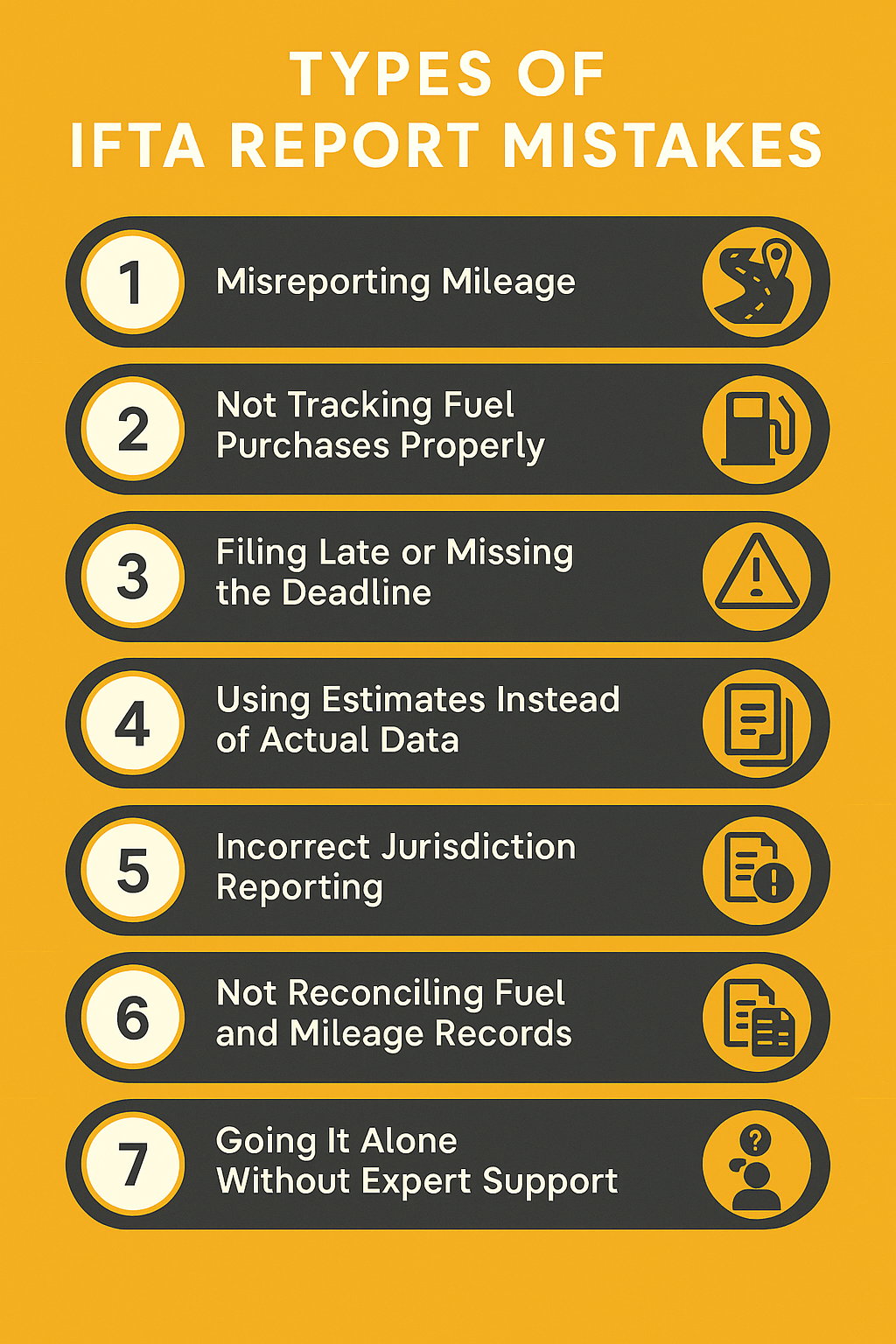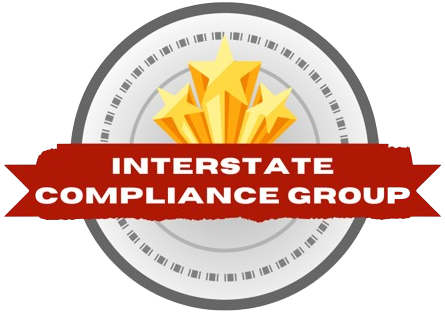Filing your International Fuel Tax Agreement (IFTA) report may not be the most exciting part of running a trucking business, but getting it wrong can lead to major headaches. Inaccurate filings, missed deadlines, or poor recordkeeping can result in hefty fines, audits, or even the suspension of your operating authority.
Luckily, most IFTA filing errors are avoidable with the right knowledge and preparation. In this article, we’ll cover the most common IFTA filing mistakes and show you how to steer clear of them. Plus, we’ll explain how MyICGroup’s IFTA service can take the stress out of staying compliant.
1. Misreporting Mileage
The Mistake:
Many carriers either overestimate or underestimate mileage in certain jurisdictions. This often happens when trip sheets aren’t accurate or when data is missing from logs.
How to Avoid It:
- Use GPS systems or ELDs to automatically track mileage per state.
- Record all miles, including deadhead and out-of-route miles.
- Regularly audit your logs to ensure consistency with fuel receipts and routes.
Accurate mileage is the foundation of a correct IFTA report.
2. Not Tracking Fuel Purchases Properly
The Mistake:
Filing an IFTA report without valid fuel receipts or with missing purchase data can trigger an audit or penalties.
How to Avoid It:
- Keep detailed, legible receipts for every fuel purchase.
- Make sure receipts include: date, address, gallons purchased, and price.
- Use apps or accounting software to digitize and store receipts securely.
Only documented fuel purchases can be used to claim credits.
3. Filing Late or Missing the Deadline
The Mistake:
IFTA reports are due quarterly, and missing the deadline can result in late fees or the suspension of your IFTA license.
How to Avoid It:
- Mark your calendar with filing dates: April 30, July 31, October 31, and January 31.
- Set reminders at least two weeks in advance.
- Use MyICGroup’s IFTA service to ensure timely and accurate submissions.
Being on time is just as important as being accurate.
4. Using Estimates Instead of Actual Data
The Mistake:
Some carriers try to “guess” mileage or fuel usage when records are incomplete. This is a huge red flag and can lead to audits or penalties.
How to Avoid It:
- Never file based on estimates.
- Use trip sheets, fuel logs, and GPS data to support every entry.
- Store all backup documentation for at least four years, in case of audit.
Always back your numbers with data.
5. Incorrect Jurisdiction Reporting
The Mistake:
A frequent mistake is leaving out jurisdictions where your truck traveled but didn’t buy fuel, or including places you didn’t operate in.
How to Avoid It:
- Review your GPS logs or route records to verify every jurisdiction.
- Include all states or provinces where you drove, even if no fuel was purchased.
- Don’t guess—verify.
Filing incomplete or false jurisdiction data is a fast way to trigger an audit.
6. Not Reconciling Fuel and Mileage Records
The Mistake:
Fuel purchases and mileage should align closely. If you bought fuel in one state but didn’t report miles there, it creates mismatched data.
How to Avoid It:
- Match every fuel purchase to a corresponding trip or state.
- Use reconciliation reports to cross-check mileage and fuel logs.
- Address any discrepancies before filing.
Auditors look for inconsistencies—don’t give them a reason to dig.
7. Going It Alone Without Expert Support
The Mistake:
Trying to manage IFTA filings solo, especially when managing a fleet, can lead to errors and compliance headaches.
How to Avoid It:
- Use MyICGroup’s IFTA service to handle calculations, documentation, and filing.
- Rely on tools and professionals who know what auditors look for.
- Free up your time for growing your business, not battling paperwork.
IFTA doesn’t have to be complicated—let the experts handle it.

Final Thoughts
Filing IFTA reports the right way takes attention to detail, good recordkeeping, and a clear understanding of compliance rules. By avoiding these common mistakes—like misreporting mileage, submitting late, or estimating data—you can protect your business from penalties and unnecessary stress.
And if you’d rather hand it off to pros who do this every day, MyICGroup’s IFTA service is ready to help. Stay compliant, avoid audits, and focus on what you do best—running your trucking operation.





